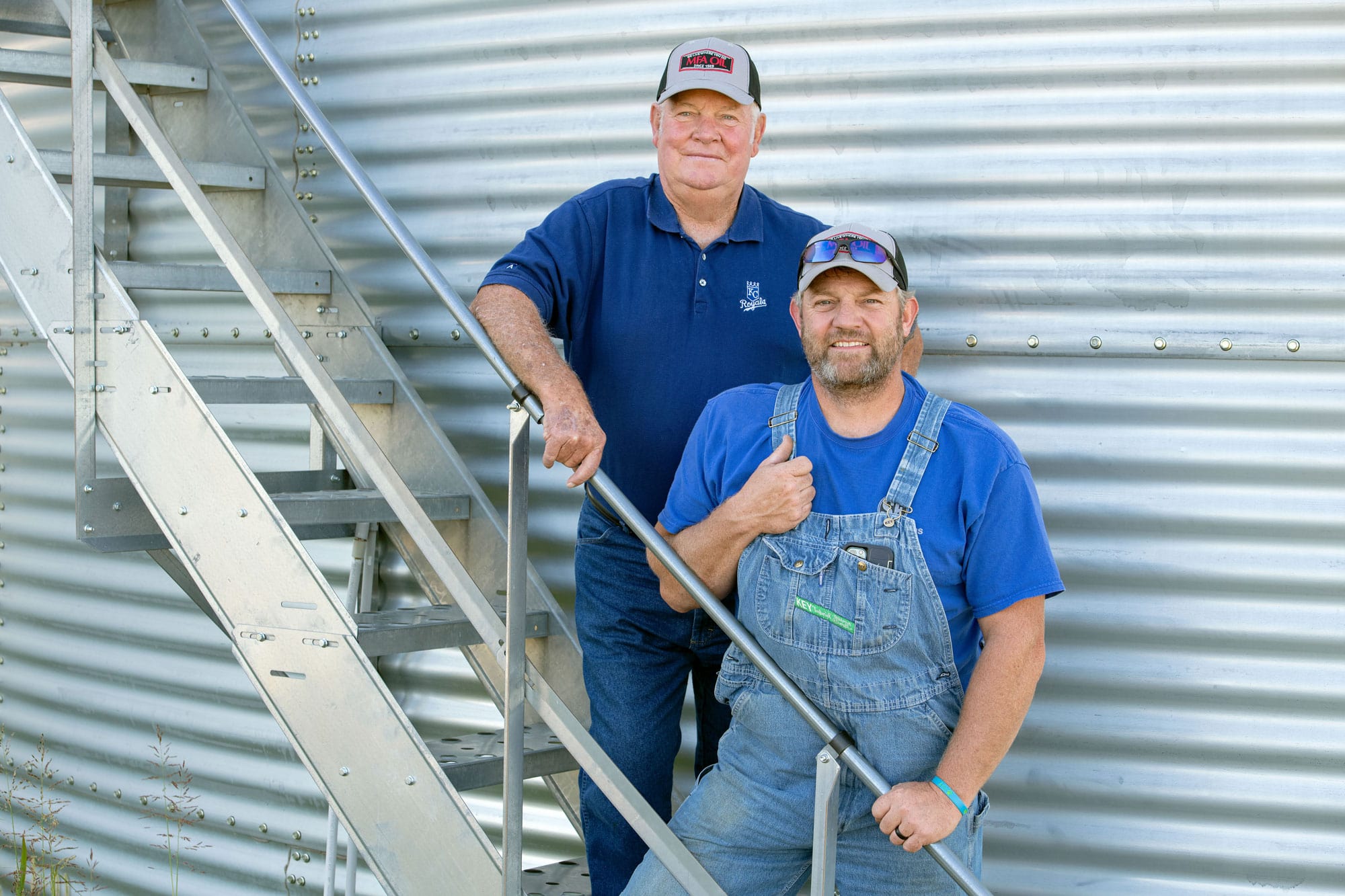
Tobacco, Terraces & Tradition
February 19, 2022
Written By Jason Jenkins
Atop a hill just off a gravel road in rural Buchanan County, an old, weathered barn stands sentinel over the rolling farm landscape of northwest Missouri. Once a place that bustled with activity, the structure now sits empty, its doors locked—a vestige of a bygone era.
This was a tobacco barn, the place where for decades, the Spencer family would bring its harvest. The tobacco leaves would be hung from the highest rafters all the way to the floor. Once dried and cured, they’d be stripped from their stalks and readied for sale at one of the auction houses in nearby Weston, the westernmost outpost for tobacco in the United States.
“I lived a lot of years raising tobacco and hogs here,” says Carlton Spencer, a third-generation farmer who was raised in a long-gone two-story farmhouse less than a mile from the barn. “Now, there’s no tobacco, and there’s no money in raising hogs.”
Tobacco production in this area peaked in 1994 when 8.2 million pounds were grown. However, like many local farmers, the Faucett, Mo., native got out of tobacco after the U.S. Department of Agriculture implemented a buyout program in 2004.
“My wife, Ashley, and I got married in 2005, and we still had tobacco that year,” says Casey Spencer, Carlton’s son who lives in nearby DeKalb. “Twenty acres was the most we ever had. It was all manual labor.”
Today, the father and son partner to farm about 2,200 acres of corn and soybeans in Platte and Buchanan counties. They also manage a 70-head cow-calf herd. In this region, one reality of farming is the prevalence of field terracing.
“We farm a lot of grass-backed terraces using no-till,” Casey says. “They’re a blessing and a curse. You can go from good black dirt to tough clay in 100 feet. Your equipment is always either too big or too small, and you’re always dodging tile outlets.”
Carlton says he and his wife, Becky, remember how farming was before terracing came into more widespread practice.
“When I was growing up, tobacco and wheat were really the only cash crops raised around here,” Carlton says. “They were just starting to raise soybeans, and all the corn was walked off the farm as hogs and cattle. A lot of the good dirt was washed away on most of this ground.”
In addition to terraces and tobacco, another tradition for the Spencer family is service to MFA Oil Company. Both father and son currently serve as delegates representing the bulk plant in St. Joseph, Mo. The Spencers consider the co-op as a partner in their farming operation.
“If we need something, all it takes is a phone call, and they’ll be out here,” Casey says, noting that the farm takes advantage of discounts on bulk fuel purchases and uses the Auto-Fill program to ensure their propane tanks stay full. “When you’re chasing kids and things on the farm, it’s one less worry.”
Carlton adds that the option of purchasing diesel exhaust fluid in bulk has eliminated one hassle on the farm. “We’re not fighting all the jugs anymore,” he says with a chuckle.
The cooperative principle of caring for community is also something the Spencers take to heart. Casey serves as a volunteer firefighter with the DeKalb Fire Protection District, which has been a recipient of past grants from the MFA Oil Foundation.
“They’ve helped us buy new turnout gear, a carbon monoxide detector, and this past fall, we received a grant for a washer-extractor to remove carcinogens from our PPE,” Casey says. “It’s been a great thing for our firehouse.”
While tobacco’s heyday in these hills may be gone, the Spencer family continues adding to its story. Carlton and Becky have seven grandchildren and one great-grandchild, including Casey and Ashley’s children—Mack, Miles and Maggie.
“We’ve had black cattle forever, but the boys wanted to show something different for 4-H this year,” Casey says. “So, we’ve got two Herefords on the farm now. There’s always something new around here.”

